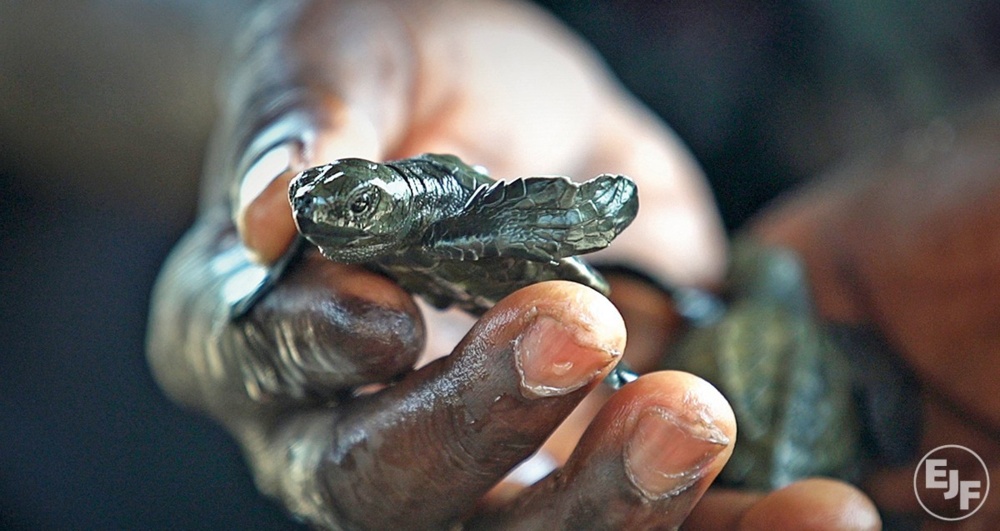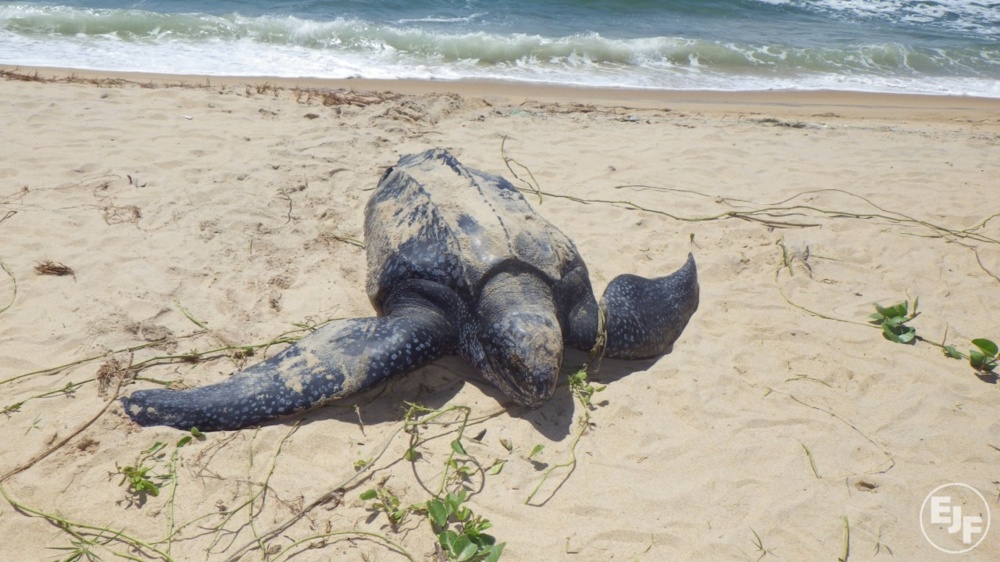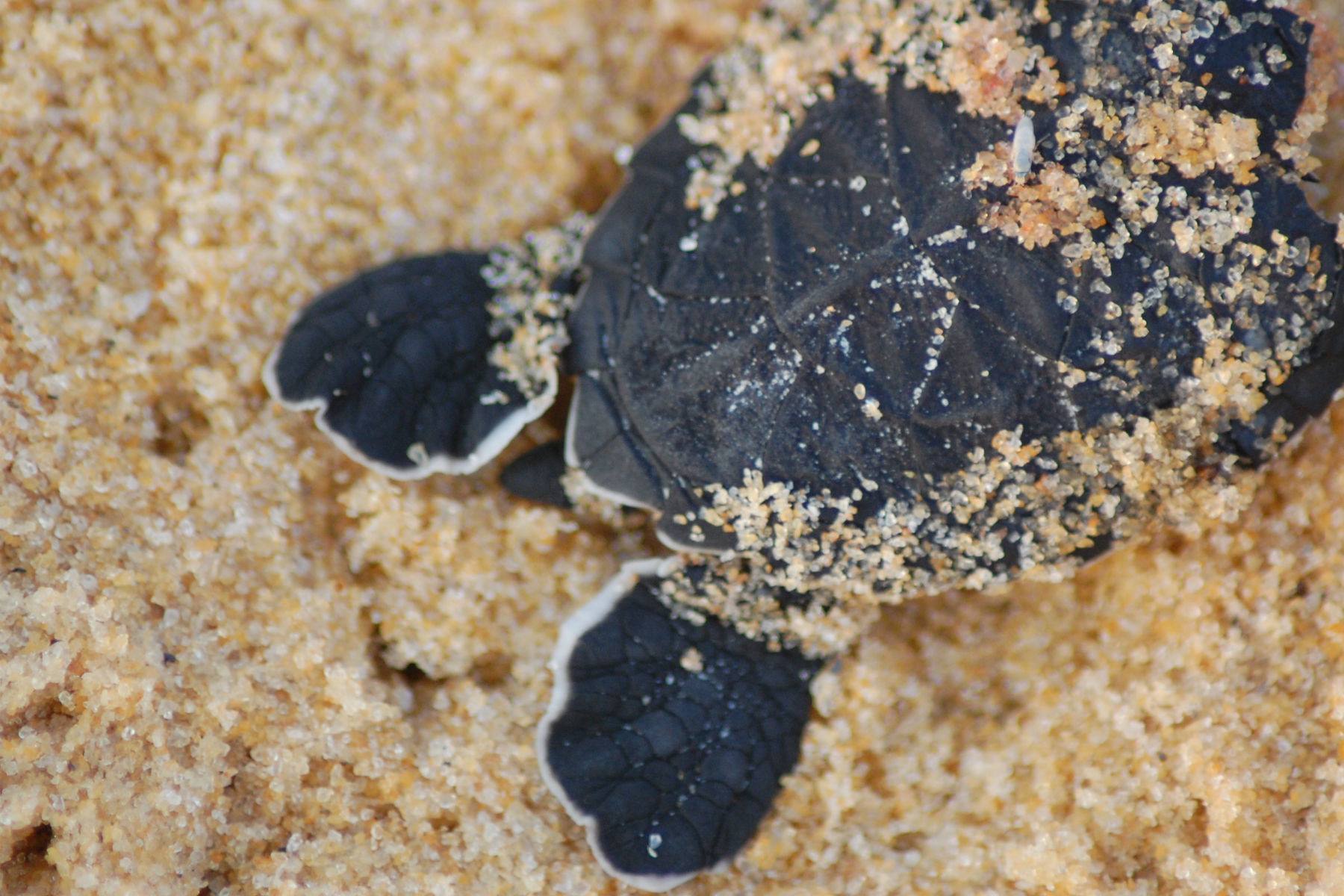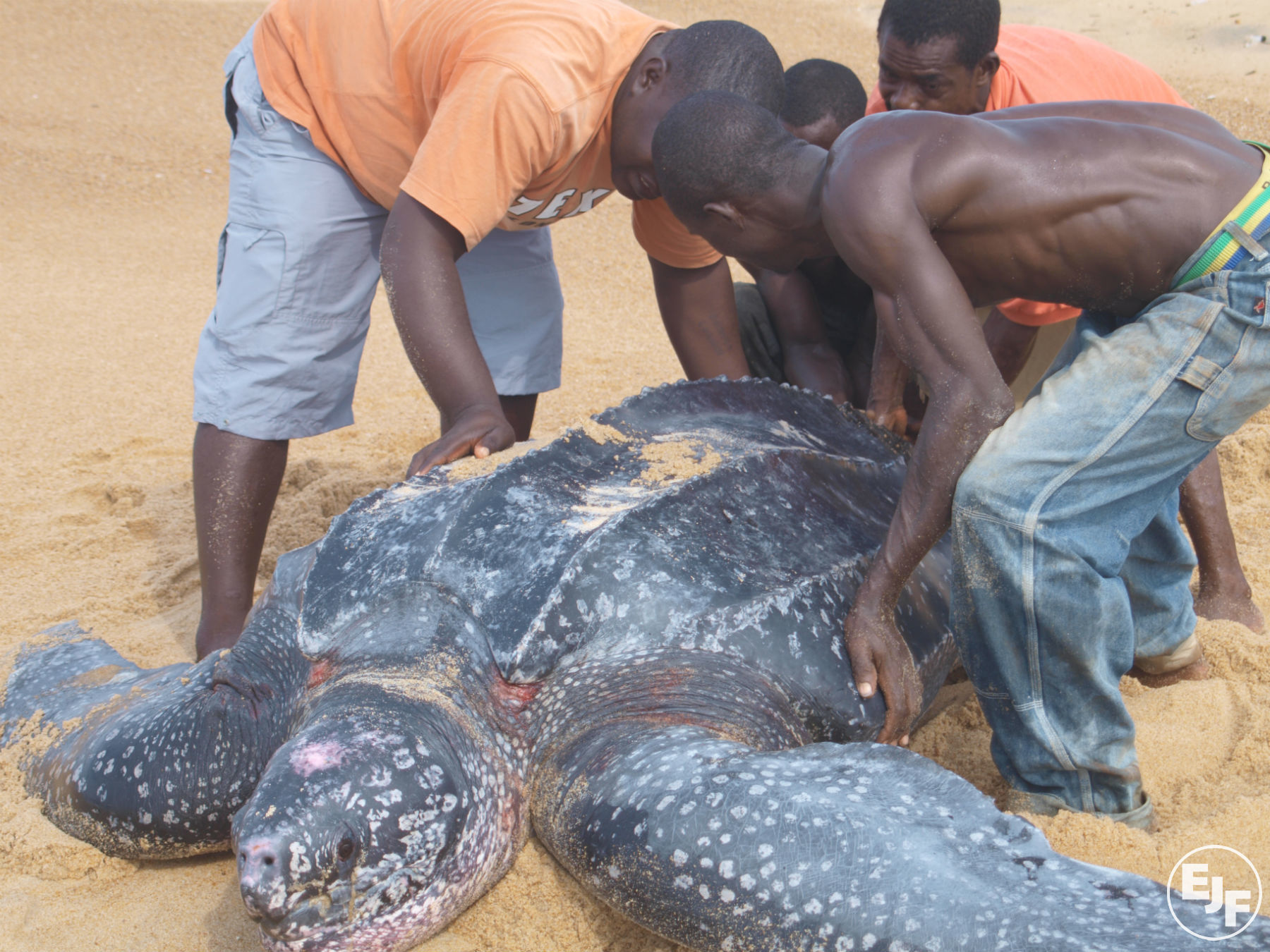
World Turtle Day: a spotlight on EJF’s work in Liberia
On World Turtle Day, EJF is celebrating the extraordinary creatures that we protect in West Africa, where we work closely with local communities, turning turtle poachers into coastal custodians.
When we began our turtle programme in Grand Cess – a coastal town in south-eastern Liberia – the sea turtles that came to nest on its beaches were being killed at an alarming rate, poached for their meat and eggs.
These unique animals – Olive Ridley, Leatherback, Green and Hawksbill turtles – all sit on a desperate spectrum from vulnerable to critically endangered.
A sea turtle’s life is troubled by human action at every stage; the hatchlings that make it to adulthood contend with the ruinous effects of ocean heating, habitat loss, the careless nets of fishers, and, when nesting, the targeted attentions of poachers. We need to negotiate a new kind of relationship with these magnificent reptiles.
To lay the foundations for a purposeful programme in Liberia, EJF campaigners knew it was essential to engage the local community. Speaking to people in Grand Cess, we found that widespread poverty, combined with a lack of information about the value of turtles and the laws protecting them, were key factors driving the trade in turtle meat.

People said that the small profit to be made from selling turtle meat can help make up their children’s school fees when fishing is going badly. Grand Cess’s community – the least to blame for the global forces causing marine degradation – is being burdened with the choice between their children’s education and the survival of Liberia’s turtles. The injustice is extreme.
Since 2017 EJF has been working closely with the community to see what alternative livelihoods can be provided, and even recruited ex- turtle poachers to manage patrols to protect nesting turtles on the beach. We’ve also been speaking to the local communities about the vital role turtles play in healthy seas, and how helping turtles can help people.
Hawksbills, for instance, feed on sponges in reefs, keeping sponge spread down and giving reef-building corals the resilience to support the fish living in them. Likewise, Leatherback turtles keep jellyfish in check, enabling fish populations to replenish. With coral reefs and fish stocks facing rapid collapse, the importance of these roles cannot be overstated.
Dominic is a local man who used to poach turtles as they came to nest on the beaches, but now works with EJF as a patroller protecting turtles. “Now that I am a turtle patroller and now longer a poacher,” he says. “I have trust in this job, and would not feel any happiness in ever eating turtle meat again.”
Since the start of 2018, 102 nesting turtles have been protected by the careful efforts of patrollers in Grand Kru County.
Sea turtles are one of Liberia’s wonders. Using the invisible lines of the Earth’s magnetic field, they make incredible migrations for thousands of miles from feeding grounds to the exact beach where they were hatched. These fascinating animals also give back to the communities they share their nesting beaches with, helping to protect the fish populations and marine ecosystems many Liberians rely on.
- Donate to EJF’s turtle conservation project – help us to train and equip more patrollers in West Africa, enabling other communities to work for rather than against their coastal environments.
SIGN UP FOR OUR EMAILS AND STAY UP TO DATE WITH EJF

